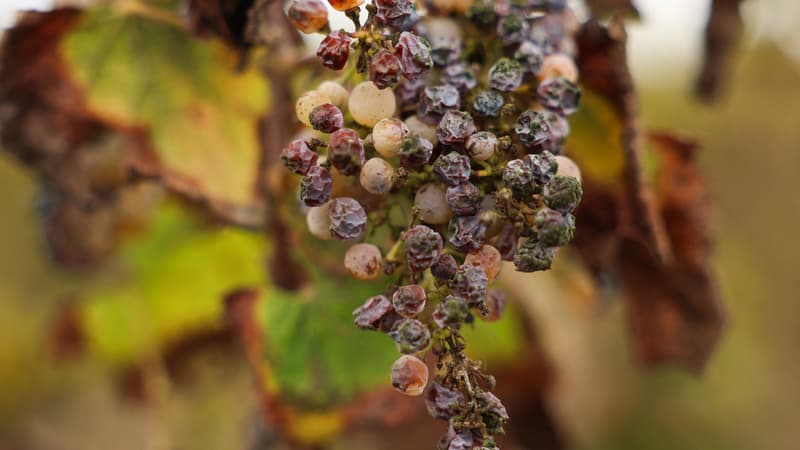For more than a century, Lodi winemakers have provided a large portion of the grapes used to produce California wine. But today the small town is in crisis: more and more businessmen are abandoning their vineyards. Decreased alcohol consumption, increased operating costs, foreign competition: this deadly cocktail has sidelined several local producers. As a result, thousands of hectares of vineyards have been uprooted in recent years.
“I have never seen anything like this,” Randy Baranek, whose family has worked in the vineyard for several generations, told AFP. According to him, Lodi has lost a quarter of its production in two years. The activity is no longer profitable: one acre (0.4 hectare) of vines produces eight to twelve tons of grapes, an amount whose sale does not generate more than 3,000 dollars. However, planting and cultivating that same area costs between $3,000 and $4,500, or up to 50% more than the sales figure.
Even ripping out the vines is prohibitive, he says, because of California’s strict environmental regulations governing the conversion of fields. For this reason, some winegrowers simply leave them abandoned.
Fall in consumption
Lodi, where Zinfandel is grown among 130 other grape varieties, is surrounded by ghost plots, full of rotting bunches. The city’s production hit its lowest level in two decades in 2024, with just 2.9 million tons harvested, according to Lodi Wine Commission Director Stuart Spencer. This year it expects an additional decrease of 400,000 tons. Because in the United States “the entire spectrum of those who contribute to the wine industry is in difficulties,” he summarizes.
For three decades, the three states of California, Oregon and Washington have patiently built solid growth, establishing themselves in the eyes of American consumers as a credible alternative to wines from the Old World (France, Italy, Spain).
But for these parts of the West Coast, the last three years have changed everything. On the one hand, generational changes mean that Americans simply “drink less” alcohol, Stuart Spencer notes. On the other hand, “inflation (…) really impacts consumers’ pockets.”
Falling demand is putting pressure on wine producers to look elsewhere. Because in the United States a bottle can be labeled as “American wine” even if part of the ready-made wine produced abroad is used for its production in vats. “In California, our largest producers, who are also the largest buyers of grapes, choose to import cheap wine in bulk instead of buying local grapes,” laments Stuart Spencer.
Reluctantly, some farmers are abandoning grapes for more popular and less expensive crops, such as almonds. A difficult decision: ripping up a vineyard to convert it costs tens of thousands of dollars, and largely automated almond production is destroying jobs in Lodi. “We are all very worried,” whispers a wine worker from the region, speaking on condition of anonymity. “I don’t know what I would do without him,” he says, pointing to the vines where he has worked for ten years.
Conversion to almonds
But for Kevin Phillips, who converted one of his fields, the bet was a winner. To cultivate his new almond orchard, he spends only a quarter of what he spent on his vineyard. And selling your production is much easier. “With grapes you have to get very close to the wine producers, you have to establish connections, (…) wait for all the stars to align,” he explains. “For almonds it is not necessary to talk to anyone. The demand is there,” he points out.
“It is much easier” to grow almonds, says the winegrower, who only managed to make this difficult decision after getting drunk. “And I hate to admit it, because I’m a wine lover,” he says.
Source: BFM TV


